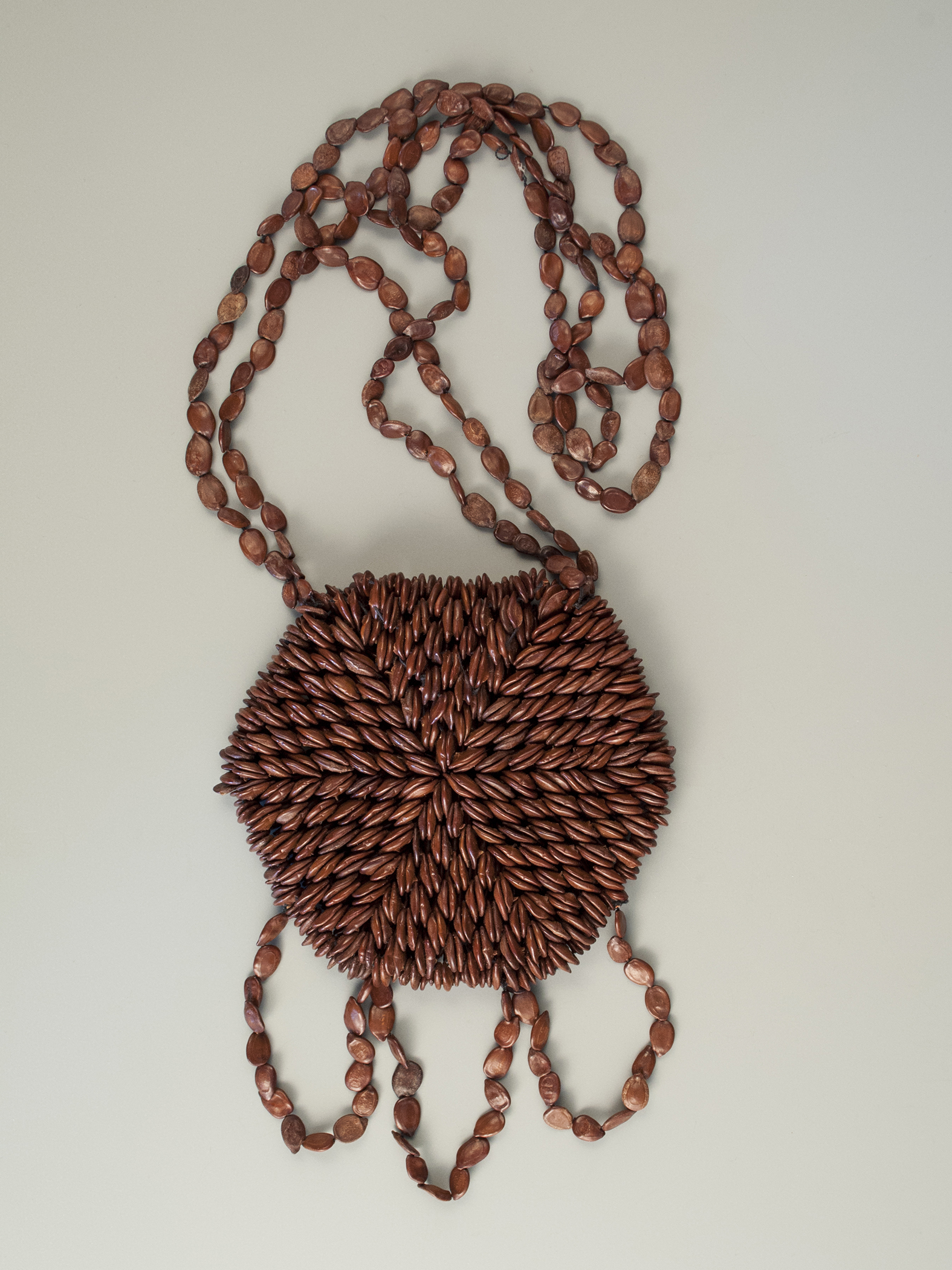Watermelon Seed Purse
Burma, 2003

In July of 1996 I published an op-ed in The Washington Post, urging fellow travelers to “vote with their wings” and use their collective economic power to advance human rights. Do not visit Burma, I wrote, while the nation’s legally elected president— Aung San Suu Kyi—is under arrest, and a brutal military dictatorship in power. I was asking a lot. Burma is a fascinating country, and the birthplace of vipassana: the “insight meditation” tradition that has becoming so popular in the West.
Seven years after my op-ed was published, there was a brief period during which the junta’s restrictions were eased. In 2003, Yoga Journal sent me to Burma with a question: Was it at last conscionable to visit a country where, since 1988, tourist dollars had been used to arm and support a murderous regime?
Burma was still under the thumb of the military during my visit, and free speech was suppressed. Still, Aung San Suu Kyi was no longer imprisoned. But any notion of a meaningful change in the state’s policies was extinguished during my visit to Mandalay.
I’d spent the morning visiting temples and monasteries, and climbing long, covered stairways toward the spires of golden pagodas. Inside the temples sat grinning buddhas, surrounded by donation boxes and blinking Christmas lights. The paths between the shrines were lined with tiny stalls. Some sold fresh watermelon; at others, squatting women sold heavy little purses made of beaded watermelon seeds.
I returned to Mandalay before sunset. That evening, the American Mission (there was no U.S. Embassy in Burma at that time) was hosting an outdoor concert on the grounds of a Russian-owned luxury hotel. The event was sponsored by “Voices America,” a State Department program that brings American performers abroad. That night’s concert promised to be groundbreaking: Jazz singer Deborah Carter and pianist Mike del Ferro would be joined by five local musicians, all playing traditional instruments. The Burmese and Americans had been rehearsing together for days.
Less than an hour before the show, the hotel received an terse call from the military: Any Burmese musician who took part in the concert would be arrested.
Hundreds of Burmese, the elite of Mandalay society, had already gathered on folding chairs in the hotel garden, dressed in their finest longyis and sparkling gowns. Hearing the news, many whispered and fidgeted nervously; plainclothes police surely lurked among us. But silence descended as Carmen Martinez, the American Chief of Mission, strode onto the raised wooden stage.
“Tonight we had hoped that you would experience a fusion of traditional American jazz and Burmese harmonies,” she announced. “Unfortunately, that won’t happen—because our wonderful Mandalay musicians have been forbidden to perform by order of the government. But we,” Martinez stated, “will proceed with our own program.”
As the crowd digested this news, Deborah Carter—a vibrant African American woman raised in Hawaii and Japan—walked silently into the spotlight. Her voice was choked with emotion. “Here is a song once sung by the slaves in America,” she said, “in hopes of the day their oppression would end.”
Surrounded by silenced Burmese drums and harps, Carter raised the microphone. She began to sing, her words ringing into the dusk:
Hold on, just a little while longer
Hold on, just a little while longer
Hold on, just a little while longer
Everything will be all right.
How times change. Who would have dreamed that today, a quarter-century later, Suu Kyi—now one of her country’s leaders— would face global condemnation for her silence around the government’s genocide of south Burma’s Rohingya Muslims?
Burma is still a beautiful, enchanting country. But the dollars spent by visitors are again paying for the cudgels, cattle prods, and bullets the government uses against its own people.
